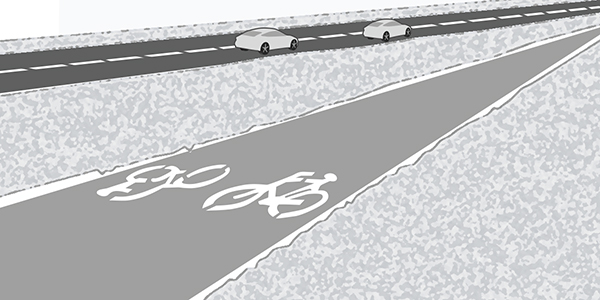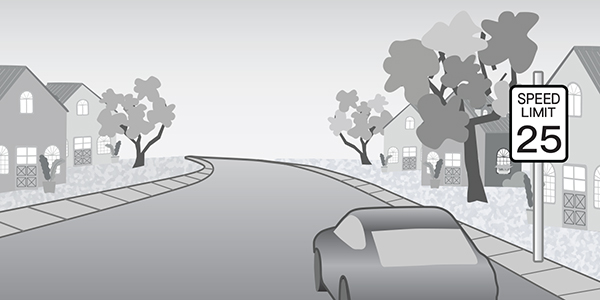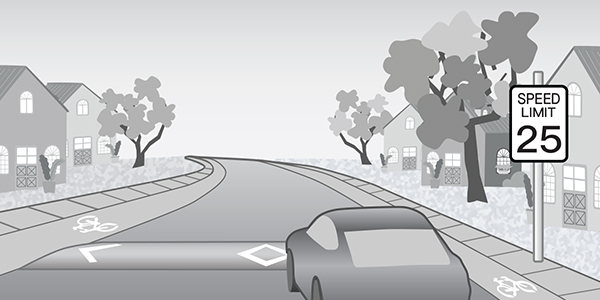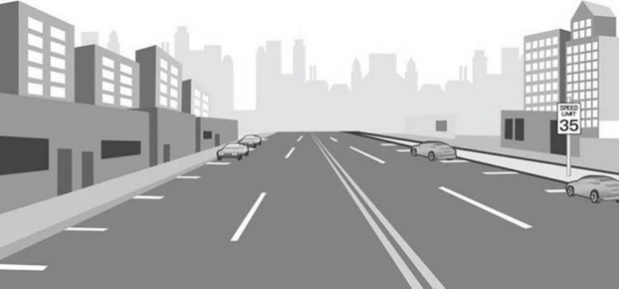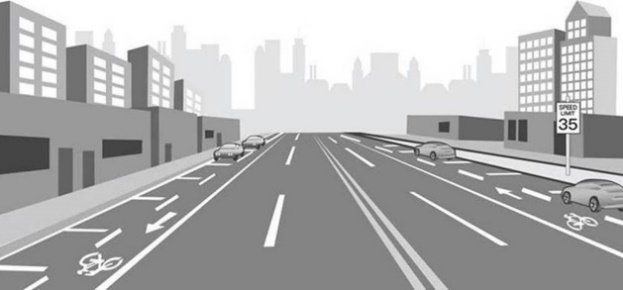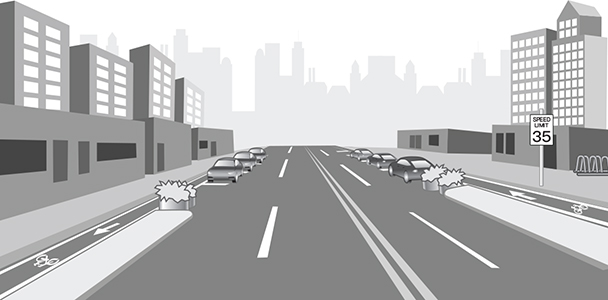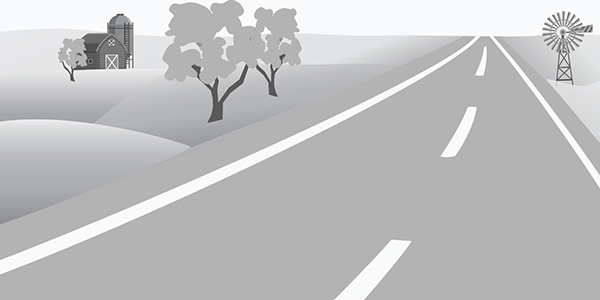1613 National Survey of Pedestrian and Bicyclist Attitudes, K
National Survey of Pedestrian and Bicyclist Attitudes, Knowledge, and Behaviors
National Survey of Pedestrian and Bicyclist Attitudes, Knowledge, and Behaviors 4-17-23
OMB: 2127-0684
NHTSA National Survey of Pedestrian and Bicyclist Attitudes and Behavior
2022
Draft Questionnaire Version 12 - Updated
National Survey of Pedestrian and Bicyclist Attitudes and Behavior
Contents
SECTION A: AGE SCREENER (2 Reg) 8
SECTION B: PRIMARY MODE (2 Reg) 8
SECTION C: PEDESTRIAN ACTIVITY (35 Reg; 8 grids; 3 images) 9
WALKING BEHAVIOR (10 Reg/3 Grid) 9
PEDESTRIAN FACILITIES USAGE (1 Reg, 1 Grid) 12
PEDESTRIAN CROSSING SIGNS & DEVICES (10 Reg/3 Images) 13
A. Pedestrian Hybrid Beacon 13
B. Rectangular Rapid Flashing Beacon (RRFB) 14
WALKING AT NIGHT & ILLUMINATION (1 Reg/1 Grid) 17
CROSSWALKS AND SIDEWALKS (5 Reg) 21
SECTION D: BICYCLE ACTIVITY (42 Reg; 11 Grids; 9 images) 23
BICYCLE RIDING BEHAVIOR (10 Reg, 1 Grid) 23
BICYCLE FACILITY USAGE AND LEVEL OF COMFORT (1 Reg, 3 grids, 7 images) 27
COLLISIONS AND INJURIES (5 Reg) 31
RIDING AT NIGHT & ILLUMINATION (1 Reg; 1 Grid) 32
HELMETS AND LAWS (7 Reg, 1 Grid) 37
SECTION E: E-SCOOTERS (5 Reg; 1 Grid; 1 Image) 44
SECTION F: CHILDREN WALKING/BIKING (7 Reg) 46
SECTION G: NEIGHBORHOOD CHARACTERISTICS (3 Reg/1 Grid) 48
SECTION H: DEMOGRAPHICS (14 Reg) 50
SECTION I: DISABILITY (6 Reg) 53
Overall Comments
Public-facing survey name: National Survey of Personal Transportation
URL: www.USTransportationSurvey.com
Programming Note: On Mobile/web, display one question per screen with vertical response options.
Current number of questions:
Regular: 116
Grid questions: 21
Images: 13
Other (Specify) responses: 9
This survey assumes a 16-page mail booklet
Landing Page
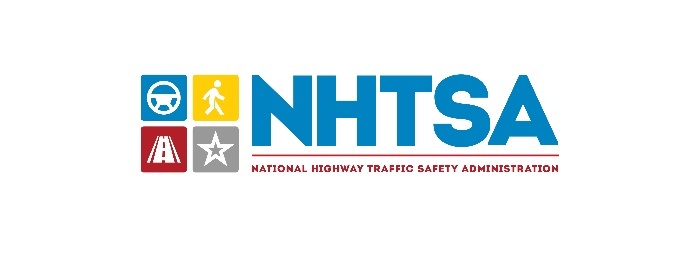
U.S. Department of Transportation
National Highway Traffic Safety Administration (NHTSA)
Welcome to the National Survey of Personal Transportation
As noted in the letter you received, please have the member of your household who is 18 years of age or older, AND has the next birthday complete the survey. This is a method of random selection.
To access the survey, please enter the PIN you received in your letter:
__________ Go to Survey
Haga clic aquí para Español
For assistance, please contact our Help Desk [email protected].
You can find answers to frequently asked questions here.
[Paperwork Reduction Act Burden Statement is displayed as separate HTML page when link is clicked]
Paperwork Reduction Act Burden Statement Under the Paperwork Reduction Act, a federal agency may not conduct or sponsor, and a person is not required to respond to, a collection of information subject to the requirements of the Paperwork Reduction Act unless that collection of information displays a current valid OMB Control Number. The OMB Control Number for this information collection is 2127-0684. The average amount of time to complete this survey is 20 minutes. All responses to this collection of information are voluntary. If you have comments regarding this burden estimate or any other aspect of this collection of information, including suggestions for reducing this burden, send them to: Information Collection Clearance Officer, National Highway Traffic Safety Administration, 1200 New Jersey Ave, SE, Washington, DC, 20590.
NHTSA Form 1148/1613.
Frequently Asked Questions
National Survey of Personal Transportation Safety – National Highway Traffic Safety Administration (NHTSA)
Who is sponsoring this survey?
The National Highway Traffic Safety Administration (NHTSA) is sponsoring this survey. NHTSA is the agency within the U.S. Department of Transportation responsible for reducing deaths and injuries resulting from motor vehicle crashes. NHTSA has contracted with ICF, an independent research firm, to conduct the survey.
Why are you doing this survey?
NHTSA is sponsoring this survey to better understand the transportation habits and opinions of people living in the United States.
How will my information be used? Will my privacy be protected?
Results from this survey will help inform safety initiatives and improve transportation safety. Keep in mind that any survey results shared with the public will be presented in group form and cannot be traced back to you.
How did you get my address?
Your household was randomly selected from a list of residential addresses in the United States. Your participation will help represent your community.
Why should I participate?
Participating in the National Survey of Personal Transportation helps NHTSA, communities, researchers, policymakers, and others better understand and respond to the transportation safety needs of the public. Your response also helps provide information for important safety initiatives in your community and across the country.
I don’t drive. Should I still participate?
Yes! We want to hear from you no matter what type of transportation you use, whether you drive, walk, bike, take the bus or subway, or use some other type of transportation.
Do I have to participate?
No, but your participation is very important because each person who answers the survey represents thousands of others. Not participating in the survey may mean that you and your community will not be represented in the results. Many people find the survey to be interesting and enjoyable. You may choose not to answer any question for any reason.
Who should complete the survey?
The person in your household who is 18 years or older with the next birthday has been selected to complete this survey. This is a method of random selection and is important to make sure that the experiences of all types of people are represented.
How long will the survey take?
It should take approximately 20 minutes to complete.
Has this study been approved by Office of Management and Budget (OMB)?
The OMB control number for this study is 2127-0684.
Who should I contact with questions?
Please direct any additional questions to [email protected] or dial TBD.
Consent Statement
[DISPLAY IF RESPONDENT ENTERED THROUGH PERSONALIZED QR CODE]

U.S. Department of Transportation
National Highway Traffic Safety Administration (NHTSA)
Welcome to the National Survey of Personal Transportation
As noted in the letter you received, please have the member of your household who is 18 years of age or older AND has the next birthday complete the survey. This is a method of random selection.
[DISPLAY FOR ALL RESPONDENTS]
Thank you for participating in the National Survey of Personal Transportation. The information you share will help the National Highway Traffic Safety Administration improve the lives of people across the country. Your household was randomly selected for this survey. To protect your privacy, your answers will be confidential and combined with answers from all other participants in any reports. The survey will take about 20 minutes. You do not need to gather any records to answer the questions – your best guess is OK. Participation in this survey is voluntary.
[IF WEB]
If you are eligible to participate, you will receive a $[IF INCENT=1 INSERT “5”][IF INCENT=2, INSERT “10”] Amazon gift code immediately after completing and submitting the questionnaire, in appreciation for your participation.
[IF MAIL]
If you are eligible to participate, a $[IF INCENT=1 INSERT “5”][IF INCENT=2, INSERT “10”] Amazon gift code will be mailed to this address about a month after the completed questionnaire has been received.
[FOOTER FOR CONSENT STATEMENT PAGE:]
For assistance, please contact our Help Desk [email protected].
You can find answers to frequently asked questions here.
[Paperwork Reduction Act Burden Statement is displayed as separate HTML page when link is clicked]
Paperwork Reduction Act Burden Statement Under the Paperwork Reduction Act, a federal agency may not conduct or sponsor, and a person is not required to respond to, a collection of information subject to the requirements of the Paperwork Reduction Act unless that collection of information displays a current valid OMB Control Number. The OMB Control Number for this information collection is 2127-0684. The average amount of time to complete this survey is 20 minutes. All responses to this collection of information are voluntary. If you have comments regarding this burden estimate or any other aspect of this collection of information, including suggestions for reducing this burden, send them to: Information Collection Clearance Officer, National Highway Traffic Safety Administration, 1200 New Jersey Ave, SE, Washington, DC, 20590.
NHTSA Form 1148/1613.
SECTION A: AGE SCREENER (2 Reg)
First, we have a few general questions about you and how you get around.
A1. What is your age?
18 years of age or older
17 years of age or younger
[ASK if A1=02]
A2. Is there anyone living in this household who is 18 years of age or older?
Yes
No
SECTION B: PRIMARY MODE (2 Reg)
[ASK ALL]
B1. What is your primary mode of transportation? By primary, we mean the way you get around most often.
Personal vehicle, cab, or ridesharing service (e.g., Uber, Lyft)
Public transportation
Walking
Biking
Motorcycle
Other
I have no primary mode of transportation
[ASK If B1 = 03, 04]
B2. Why is this your primary mode of transportation? Select all that apply.
Personal preference
Most convenient option
Cost concerns/affordability
No personal vehicle available
No public transportation options available
Better for the environment
Increase exercise
Other (Specify)
SECTION C: PEDESTRIAN ACTIVITY (35 Reg; 8 grids; 3 images)
WALKING BEHAVIOR (10 Reg/3 Grid)
This next section asks about your experiences walking around outside. Please include any outdoor walking, jogging, or running that lasts more than 5 minutes. If you use a wheelchair, walker, or other assistive device, please include times when you used it to get around outside for more than 5 minutes.
[ASK ALL]
C1. When was the last time you walked, jogged or ran outside, on a road, street, sidewalk, or trail for more than 5 minutes? (2012 #51, open-ended with codes)
Within the past week
Within the past month, but not the past week
Within the past year, but not the past month
1-2 years ago
3-5 years ago
More than 5 years ago
Never
[ASK All]
C2. How much do you agree or disagree with the following statement?
I would like to walk more than I do now.
(2012 #86 option A – modified to follow Prof. Dill’s bicyclist Typology scale; No “Don’t know” option.)
Strongly agree
Somewhat agree
Somewhat disagree
Strongly disagree
[ASK IF C1= 04, 05, 06, 07, ie R last walked more than a year ago]
[PROGRAMMING NOTE: Randomize order of response options other than 07 – Other for each respondent]
C3. Below are some common reasons people don’t walk, jog, or run outside at all or may have stopped. Which of these reasons apply to you? Select all that apply. (New – Mirrors bike equivalent 2012 #3; equivalent of 2012 # 87 – was not read)
I’ve been too busy, or had no opportunity to walk
There is no safe place to walk near me
Inadequate lighting to walk at night
I have a disability or other health impairment
Other transportation options are faster
No interest/I don’t like to walk

IF YOU’VE WALKED OUTSIDE FOR MORE THAN FIVE MINUTES IN THE LAST YEAR, CONTINUE BELOW.
IF YOU HAVEN’T WALKED OUTSIDE IN THE LAST YEAR (C1 = 04, 05, 06), SKIP TO THREATS.
IF YOU’VE NEVER WALKED (C1 = 07), SKIP TO THE BIKING SECTION.
Some other reason (specify)
[ASK IF C1= 01, 02, 03, ie walked in the past year]
C4. On average, how often do you walk, jog, or run outside for more than 5 minutes? (2012 #52 – Modified: 30-day timeframe removed and changed to frequency scale instead of number of days; was previously open-ended)
Daily
Four to six times a week
Two to three times a week
Once a week
A few times a month
Once a month or less
[ASK IF C1= 01, 02, 03]
C5. Do you typically walk, run, or jog more on the weekdays or the weekend? (Modification of 2012 #53 – asking generally rather than specific occasion)
Weekday (Monday – Friday)
Weekend (Saturday or Sunday)
Equally between weekday and weekend
[ASK IF C1= 01, 02, 03]
C6. During what time of day do you walk, jog, or run outside the most? (New – Request from Ruth)
Morning, before sunrise
Morning, after sunrise but before noon
Afternoon
Evening, before sunset
Evening, after sunset
Nighttime
[ASK IF C1= 01, 02, 03]
C7. How often do you walk, run, or jog outdoors in the following seasons?
|
Frequently |
Sometimes |
Seldom |
Never |
Winter |
|
|
|
|
Spring |
|
|
|
|
Summer |
|
|
|
|
Fall |
|
|
|
|
[ASK IF C1= 01, 02, 03]
C8. On a typical day during the months that you walk, about how long do you walk? Don’t count any stops – just the average amount of time you walk. (New - Ped equivalent of Bike version 2012 #28-29)
____ Hours _____Minutes
[ASK IF C1= 01, 02, 03]
C10. Compared to about a year ago, would you say you are now walking more often, less often or about the same amount? (2012 #73)
More often
Same amount
Less often
[ASK IF C1= 01, 02, 03]
C11. What are the main reasons you walk? Select all that apply. (2012 #55, – WAS NOT READ – General question as opposed to specific trip loop. Some options removed, combined)
Commuting to/from work
Commuting to/from school
Recreation or pleasure
Exercise/for my health
Personal errands (to/from the store, post office, and so on)
Required for my job
Drop off/Pick up someone, including children at school
Visit a friend or relative
Walk the dog
Some other reason (specify)
[ASK IF C1= 01, 02, 03]
C12. How often do you walk, jog, or run with others compared to walking alone? (Expanded version of 2012 #64)
|
Always with others |
More often with others |
Equally with others and alone |
More often alone |
Always alone |
Not applicable |
|
|
|
|
|
|
|
|
|
|
|
|
|
|
PEDESTRIAN FACILITIES USAGE (1 Reg, 1 Grid)
[ASK IF C1= 01, 02, 03]
C13. When you walk, jog, or run, how often do you use the following type of path or road? (2012 #62 – Added frequency scale)
-
Always
Frequently
Sometimes
Seldom
Never
Not available
Sidewalks
Shoulders of paved roads
Paved roads, not on shoulder
Bike paths, walking paths, or trails
Unpaved roads (e.g., dirt, gravel, sand)
Grass or fields next to road
[ASK IF C13A = 02, 03, 04, 05 (Doesn’t always use sidewalks)]
C14. What is the main reason that you don’t always use sidewalks? (2012 #77, was not read, added one option based on 2012 answer)
Not in good repair
Don't go where I need to go
Too crowded
Prefer softer surface
Don't feel safe
Other (specify)
PEDESTRIAN CROSSING SIGNS & DEVICES (10 Reg/3 Images)
[ASK IF C1= 01, 02, 03]
[PROGRAMMING NOTE: The next 3 screens will need to be randomized for each respondent. Each image should be followed by the three questions listed below.]
Pedestrian Hybrid Beacon
Shown below is a traffic control device designed to help pedestrians cross busy roadways at crossings and intersections without traffic signals. When the pedestrian wishes to cross, they press a button. The overhead lights flash red to tell motorists to stop and the pedestrian signal flashes a WALK display.

Rectangular Rapid Flashing Beacon (RRFB)
Shown below is another type of pedestrian-warning sign for crossings without traffic signals. The lights on the sign are turned on when a pedestrian pushes a button or when the device senses that a pedestrian is nearby. The lights flash very quickly to alert motorists to pedestrians attempting to cross.
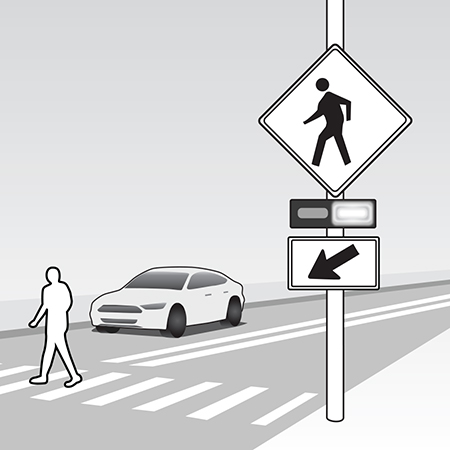
LED-embedded Sign
Shown below is another type of pedestrian-warning sign for crossings without traffic signals. Bright LED-lights around the edges of the sign are turned on when a pedestrian pushes a button or when the device senses that a pedestrian is nearby. The lights make the sign more visible to motorists.
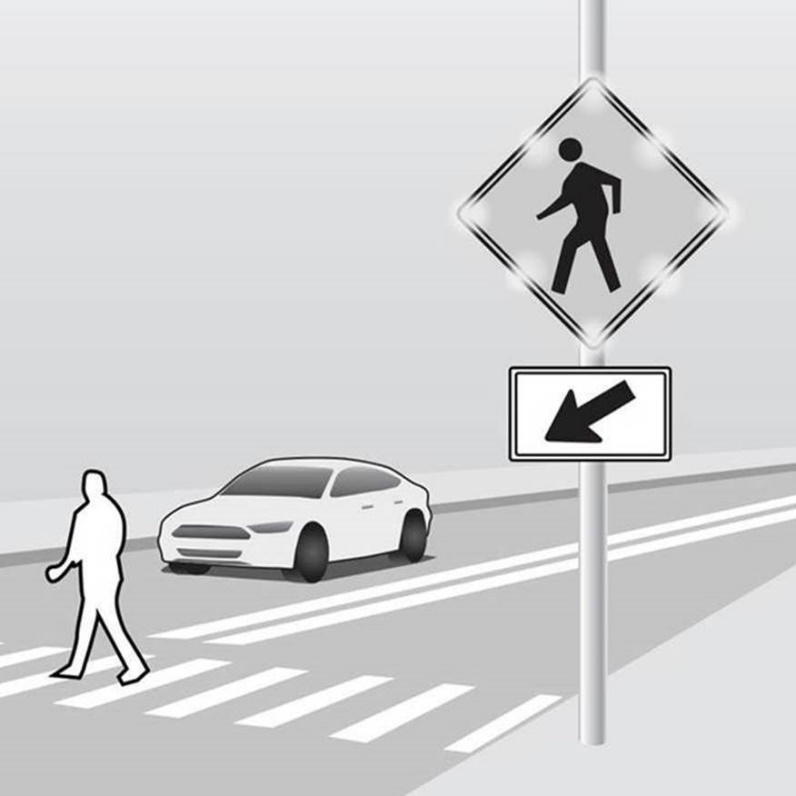
C15. Have you ever used this type of crossing? (New)
Yes
No
Not sure
[ASK IF C15 = Yes]
[PROGRAMMING NOTE: R should receive the two follow-up questions below while still on the same screen as the image above.]
C16. Did you feel it increased your safety while crossing the street? (New)
Yes
No
Not Sure
[Ask All]
C17. Regardless of whether or not you’ve used this type of crossing, would you ever go out of your way or change your route to use it if it was available? (New, added for consistency with bike series Part C)
Yes
No
[ASK IF C3 NE 6]
C18. When you are walking, jogging, or running on a roadway without a sidewalk, do you usually position yourself . . . (2012 #63)
Facing traffic, that is, walking, jogging, or running against the direction of the cars
With traffic, that is, walking, jogging, or running in the same direction as the cars
Depends on the situation
I never walk in the road
WALKING AT NIGHT & ILLUMINATION (1 Reg/1 Grid)
[ASK IF C1= 01, 02, 03]
C19. During the past year, how much of your walking was done when it was dark or nearly dark outside? (2012 #68)
Nearly all
More than half
About half
Some
Almost none
None
[ASK IF C19 = (01, 02, 03, 04)]
C20. When you walk, jog, or run after dark, how often do you do any of the following to make yourself more visible? (2012 #70 – Added frequency scale)
-
Always
Frequently
Sometimes
Seldom
Never
Wear light colored clothing
Wear fluorescent or reflective clothing/Shoes
Wear or carry a flashlight
Walk only in well-lit areas
TECHNOLOGY (1 Reg, 1 Grid)
[ASK IF C1= 01, 02, 03]
C21. Do you use a pedometer or other activity tracking device (e.g., FitBit, Cell phone app) to track your physical activity? (New)
Yes
No
[ASK IF C1= 01, 02, 03]
C22. How often do you do any of the following with your cell phone or other electronic device while walking, jogging, or running outside? (New)
-
Always
Frequently
Sometimes
Seldom
Never
Talking or calling
Listening to music or audio
Reading or scrolling
Texting or typing
Using a navigation app
Using a fitness app
INJURIES (5 Reg)
[ASK IF C1= 01, 02, 03]
C23. In the past 12 months, were you ever injured while you were walking, running, or jogging outside? (Variation of 2012 #78; modified to one-year timeframe; modified to also include minor injuries)
Yes =>Enter number (enter zero if none)
No
[ASK IF C23> 0]
C24. What kind of medical attention did you need for your most recent injury? (New)
Emergency room visit
Non-emergency doctor visit
Treated at home
No treatment needed
[ASK IF C23> 0]
C25. What was the cause of this injury? (2012 #79-80 – Was completely open-ended)
Incident with a motorist (e.g., driver of car, motorcycle, truck)
Incident with a bicyclist
Incident with e-scooter rider
Incident with a pedestrian
Incident with an animal
Icy or wet pavement
Uneven pavement
Walked or ran into fixed object
Other
[ASK IF C25 = 01]
C26. Was the incident with the motorist reported to the police?
Yes
No
[ASK IF C23 > 0]
C27. Was distraction from a cell phone a factor in the cause of the injury? (New)
Yes, I was distracted
Yes, the other person involved was distracted
Yes, both the other person and I were distracted
No, distraction was not a factor
I don’t know
THREATS (1 Grid)
[ASK IF C1= 01, 02, 03, 04, 05, 06 – Walkers from over a year ago skip here]
C28. Below is a list of situations that can make walkers, joggers, and runners feel threatened for their personal safety. Have you ever felt threatened for your personal safety when you are walking, jogging, or running outside because of any of the following? (2012 #66-67)
(Mark “Yes” if you have ever felt threatened by a situation. Mark “No” if you have never felt threatened by a situation)
-
Yes
No
Motorist (e.g., driver of car, motorcycle, truck) cutting me off
Motorist entering intersection without looking
Motorist driving very close to me
Motorist honking at me
Motorist almost hitting me
Motorist driving very fast
Motorist using a cell phone while driving
Path too close to motor vehicle traffic
Path crowded with non-motorists (bicyclists, pedestrians, etc.) competing for space
Dogs or other animals
Obstacles blocking the path (e.g., parked vehicles, trash cans)
Poorly maintained paths or roadway surfaces (e.g., cracks, potholes, broken glass)
Poorly lit path
Potential for physical assault
Potential for robbery
CROSSWALKS AND SIDEWALKS (5 Reg)
[ASK IF C1= 01, 02, 03, 04, 05, 06]
C29. Do drivers in your community usually yield to pedestrians in crosswalks? (2012 #85)
Yes
No
[ASK IF C1= 01, 02, 03, 04, 05, 06]
C30. Are there sidewalks in your neighborhood… (2012 #74)
Along almost all streets
Along most streets
Along some streets
Along no streets [Skip ahead to C32]
[ASK IF C1 = 01, 02, 03, 04, 05, 06 AND C29 = 01, 02, 03]
C31. In what condition are these sidewalks? Are they in excellent, good, fair, or poor condition? (2012 #75)
Excellent
Good
Fair
Poor
[ASK IF C1= 01, 02, 03, 04, 05, 06]
C32. How satisfied are you with how your local community is designed for making walking safe? Are you . . . ? (2012 #81)
Very satisfied
Somewhat satisfied
Neither satisfied nor dissatisfied
Somewhat dissatisfied
Very dissatisfied
[ASK IF C1= 01, 02, 03, 04, 05, 06]
C33. What changes, if any, would you like to see your local government make in your community for pedestrians? Select all that apply. (2012 #82 – was not read, added one option based on 2012)
More crosswalks
More sidewalks
More pedestrian paths or trails
Sidewalk/walkway improvements
More lights on streets
More lights on paths/trails
Other (specify)
None, can’t think of any
IMPAIRMENT (2 Reg, 1 Grid)
[ASK IF C1= 01, 02, 03, 04, 05, 06]
C34. Have you ever walked along a public street while impaired due to drinking alcohol or using substances?
Yes
No
[ASK IF C34= 01]
C35. Why have you walked along a public street while impaired due to drinking alcohol or using substances? Select all that apply.
Too impaired to drive
Walked to vehicle or transit a distance away
No public transit available
Couldn’t afford public transit
No taxi or ridehailing service available
Couldn’t afford a taxi or ridehailing service
Didn’t have the option to ask for a ride from a friend or family member
Don’t have a driver’s license
Trip was short enough that I could manage it safely
Other
[ASK IF C1 = (01, 02, 03, 04, 05, 06)]
C36. If you were too impaired to drive due to drinking or using substances, couldn’t use public transit, and had to travel several miles, how likely would you be to choose the following options? (New)
-
Very likely
Somewhat likely
Somewhat unlikely
Very unlikely
Ask a friend or family member to drive me
Call a cab or ridesharing service (e.g., Uber, Lyft)
Ride a bike
Walk
Other (e.g., e-scooter)
SECTION D: BICYCLE ACTIVITY (42 Reg; 11 Grids; 9 images)
BICYCLE RIDING BEHAVIOR (10 Reg, 1 Grid)
Now we have some questions about your bicycling habits. We want to hear from you even if you don’t ride a bike very often. If you use any type of assistive device to ride a bicycle, please count that as riding.
[ASK All]
D1. When was the last time you rode a bicycle on a road, street, sidewalk, or trail? Do not include stationary bikes. (2012 #1)
Within the past week
Within the past month, but not the past week
Within the past year, but not the past month
1-2 years ago
3-5 years ago
More than 5 years ago
Never
[ASK All]
D2. How much do you agree or disagree with the following statement?
I would like to travel by bike more than I do now.
(2012 #86 option B – modified to follow Prof. Dill’s bicyclist wording and typology scale; No “Don’t know” option.)
Strongly agree
Somewhat agree
Somewhat disagree
Strongly disagree
[ASK IF D1 = (04, 05, 06, 07 ie R last rode bike more than 1 year ago)
[PROGRAMMING NOTE: Randomize order of response options other than 10 (some other reason) for each respondent]
D3. Below are some common reasons people don’t ride a bicycle or may have stopped. Which of these reasons apply to you? Select all that apply. (2012 #3 – Was not read. Question reworded and answer options expanded for clarity. “I don’t have a bicycle available” option added here instead of being standalone question [was #2 in 2012])
I don’t own a bicycle or have one available to use
I’ve been too busy
My bike is broken
There is no safe place to ride near me
I have a disability or other health impairment
Other transportation options are faster
No interest
I don’t know how to ride a bike

IF YOU’VE RIDDEN A BICYCLE IN THE LAST YEAR, CONTINUE BELOW.
IF YOU’VE RIDDEN A BICYCLE MORE THAN 1 YEAR AGO (D1 = 04, 05, 06), SKIP TO THE THREATS SECTION.
IF YOU’VE NEVER RIDDEN A BICYCLE, SKIP TO EMPATHY.
Some other reason (specify)
[ASK If D1 = 01, 02, 03, ie R has ridden in the past year]
D4. On average, how often do you ride? (2012 #4 and #27 – Adjusted after removing trip loop – Specific timeframe removed; was previously open-ended)
Daily
Four to six times a week
Two to three times a week
Once a week
A few times a month
Once a month or less
[ASK IF D1 = 01, 02, 03]
D5. Do you typically ride more on the weekdays or the weekend? (2012 #5, Modified to no longer ask about specific occasion, now that trip loop has been removed)
Weekday (Monday – Friday)
Weekend (Saturday or Sunday)
Equally between weekday and weekend
[ASK IF D1= 01, 02, 03]
D6. During what time of day do you ride the most? (New – Equivalent of ped question which was a request from Ruth)
Morning, before sunrise
Morning, after sunrise but before noon
Afternoon
Evening, before sunset
Evening, after sunset
Nighttime
[ASK IF D1= 01, 02, 03]
D7. How often do you ride a bike outdoors in the following seasons?
|
Frequently |
Sometimes |
Seldom |
Never |
Winter |
|
|
|
|
Spring |
|
|
|
|
Summer |
|
|
|
|
Fall |
|
|
|
|
[ASK IF D1 = (01, 02, 03)]
D8. On a typical day that you ride a bicycle, about how long do you ride? Don’t count any stops – just the average amount of time you travel on your bike. (COMBINES 2012 #28-29)
____ Hours _____Minutes
[ASK IF D1 = (01, 02, 03)]
D9. Compared to about a year ago, would you say you are now riding a bike more often, less often or about the same amount? (2012 #30)
More often
Same amount
Less often
[PROGRAMMING NOTE: Randomize order of response options other than 08 for each respondent]
[ASK IF D1 = (01, 02, 03)]
D10. What are the main reasons you ride a bike? Select all that apply. (2012 #7 – WAS NOT READ – General question as opposed to specific trip loop. Some options removed, combined)
Commuting to/from work
Commuting to/from school
Recreation or pleasure
Exercise/For My Health
Personal Errands (to/from the store, post office, and so on)
Required for my job
Visit a friend or relative
Some other reason (specify)
[ASK IF D1 = 01, 02, 03]
D11. How often do you ride with others compared to riding alone? (2012 #16 – Modified by adding frequency scale and removing timeframe)
Always with others
More often with others
Equally with others and alone
More often alone
Always alone
BICYCLE FACILITY USAGE AND LEVEL OF COMFORT (1 Reg, 3 grids, 7 images)
[ASK IF D1 = (01, 02, 03)]
D12. Are bike lanes, that is, marked lanes on a public road reserved for bikes to travel, available within a quarter mile, or about 3 blocks, from where you live? (2012 #34)
Yes
No
Don’t know
[ASK IF D1 = (01, 02, 03)]
D13. How comfortable or uncomfortable would you feel biking in the following places?
|
Very Comfortable |
Somewhat Comfortable |
Somewhat Uncomfortable |
Very Uncomfortable |
A path or trail separate from the street
|
|
|
|
|
A quiet residential street with traffic traveling at speeds of 20-25 miles per hour
|
|
|
|
|
A quiet residential street with traffic traveling at speeds of 20-25 miles per hour that also has bicycle route markings, wide speed humps, and other things to discourage and slow down car traffic
|
|
|
|
|
A major urban or suburban street with four lanes, on-street parking, traffic speeds of 30-35 miles per hour and no bike lane
|
|
|
|
|
A major urban or suburban street with four lanes, on-street parking, traffic speeds of 30-35 per hour and a striped bike lane
|
|
|
|
|
A major urban or suburban street with four lanes, on-street parking, traffic speeds of 30-35 miles per hour and a wide bike lane physically separated from traffic by a raised curb, planters, or parked cars
|
|
|
|
|
A rural or country road with infrequent traffic
|
|
|
|
|
[ASK IF D1 = (01, 02, 03)]
D14.When you bike, how often do you use the following …?
(2012 #14, modified options and added frequency scale)
|
Always |
Frequently |
Sometimes |
Seldom |
Never |
Not available |
|
|
|
|
|
|
|
|
|
|
|
|
|
|
|
|
|
|
|
|
|
|
|
|
|
|
|
|
|
|
|
|
|
|
|
|
|
|
|
|
|
|
|
|
|
|
|
|
|
[ASK IF D14 = (01, 02, 03, 04)]
D15. Regardless of whether or not you’ve used any of these facilities, would you ever go out of your way or change your route to bike on them if they were available? (New)
|
Yes |
No |
|
|
|
|
|
|
|
|
|
|
|
|
|
|
|
|
|
|
|
|
|
COLLISIONS AND INJURIES (5 Reg)
[ASK IF D1 = (01, 02, 03)]
D16. In the past 12 months, were you ever injured while you were riding a bike? (Variation of 2012 #38; modified to one-year timeframe; modified to also include minor injuries)
Yes =>Enter number (enter zero if none)
No
[ASK IF D16 > 0]
D17. What kind of medical attention did you need for your most recent injury? (New)
Emergency room visit
Non-emergency doctor visit
Treated at home
No treatment needed
[ASK IF D16 > 0]
D18. What was the cause of this injury? (2012 #39-40; 40 was previously completely open-ended)
Incident with motorist (e.g., driver of car, motorcycle, truck)
Incident with another bicyclist
Incident with e-scooter rider
Incident with a pedestrian
Incident with an animal
Icy or wet pavement
Fell off my bike/lost balance
Bike malfunction
Struck a fixed object
Other
[ASK IF D18 = 1 (incident WITH MOTORIST)]
D19. Was the incident with the motorist reported to the police? (New)
Yes
No
[ASK IF D16 > 0]
D20. Was distraction from a cell phone a factor in the cause of the injury? (New)
Yes, I was distracted
Yes, the other person involved was distracted
Yes, both the other person and I were distracted
No, distraction was not a factor
I don’t know
RIDING AT NIGHT & ILLUMINATION (1 Reg; 1 Grid)
[ASK IF D1 = (01, 02, 03)]
D21. During the past year, how much of your biking was done when it was dark or nearly dark outside? (2012 #23)
Nearly all
More than half
About half
Some
Almost none
None
[ASK IF D21 = (01, 02, 03, 04)]
D22. When you ride after dark, how often do you do any of the following to make yourself more visible? (Modified 2012 #25 to capture frequency)
-
Always
Frequently
Sometimes
Seldom
Never
Use bike headlight
Use bike tail light
Wear fluorescent or reflective clothing/shoes
Wear other lights on self or belongings
Ensure bicycle has reflectors
Ride only in well-lit areas
Other
TECHNOLOGY (1 Reg, 1 Grid)
[ASK IF D1 = (01, 02, 03)]
D23. How often do you do any of the following with your cell phone or other electronic device while on the bike? (New)
-
Always
Frequently
Sometimes
Seldom
Never
Talking or calling
Listening to music or audio
Reading or scrolling
Texting or typing
Using a navigation app
Using a fitness app
[ASK IF ANY OF D23 = ALWAYS, FREQUENTLY, SOMETIMES, or SELDOM]
D24. When you’re doing these things, do you usually hold the electronic device in your hand? (New)
Yes
No
THREATS (3 Reg; 2 Grids)
[ASK IF D1 = (01, 02, 03, 04, 05, 06) biCyclists from over a year ago skip here]
D25. How confident do you feel navigating a bicycle in the following types of situations? (New)
-
Very confident
Somewhat confident
Somewhat hesitant
Very hesitant
Non-traditional intersections (e.g., roundabout, traffic circle)
Intersections with no designated bike space
Railway crossings
Heavy or fast-moving motor vehicle traffic
Heavy bicycle, pedestrian, or other traffic on shared paths
Poor pavement conditions (potholes, cracks, etc.)
Poor lighting
Disconnected bike lanes or pathways (e.g., “bike lane ends” sign)
[ASK IF D1 = (01, 02, 03, 04, 05, 06)]
D26. When riding your bike in the road, do you mostly ride. . .? (2012 #15, edited slightly to add C and D, which were not read aloud, but included as options that the interviewer could check if volunteered by respondent)
Facing traffic, that is, riding against the direction of the cars
With traffic, that is riding in the same direction as the cars
Depends on the situation
I never ride on the road
[ASK IF D1 = (01, 02, 03, 04, 05, 06)]
D27. When you are bicycling, how often do you have to change your route because of obstacles, road environment or condition, or other problems? (Slightly edited version of 2012 #37.)
Nearly all of the time
Most of the time
Some of the time
Almost none of the time
[ASK IF D27 = (01, 02, 03)]
D28. What types of obstacles would cause you to change your route? Select all that apply. (Expansion of 2012 #37 with some additional options; modified to remove frequency scale)
Construction
Heavy or fast-moving motor vehicle traffic
Poor pavement conditions (potholes, cracks, etc.)
Broken glass or litter in road
Poor lighting
Disconnected bike lanes or pathways
Railroad crossings
Heavy bicycle, pedestrian, or other traffic on shared paths
Other
[ASK IF D1 = (01, 02, 03, 04, 05, 06)]
D29. Below is a list of some situations that can make bicyclists feel threatened for their personal safety. Have you felt threatened for your personal safety when you are riding your bike because of any of the following? (Combination of 2012 #18 and #19)
-
Yes
No
Motorist passing too closely
Motorist using a cell phone
Motorist cutting me off or turning across my path
Motorist honking at me
Motorist entering intersection without looking
Interactions with buses or other large commercial vehicles
Increased presence of large SUVs on the road
Parked car door opening into my path
Physical assault by a motorist
Physical assault by a pedestrian
Dog chasing me
COMMUNITY (2 Reg)
[ASK IF D1 = (01, 02, 03, 04, 05, 06)]
D30. How satisfied are you with how your local community is designed for making bike riding safe? (2012 #45)
Very satisfied
Somewhat satisfied
Neither satisfied nor dissatisfied
Somewhat dissatisfied
Very dissatisfied
[ASK IF D1 = (01, 02, 03, 04, 05, 06)]
D31. What changes, if any, would you like to see your local government make in your community for bicyclists? (2012 #46, was not read; answer options modified)
More bike lanes on streets
More separated bike lanes on streets
More bike trails
Allow bikes on sidewalks
Don't allow bikes on sidewalks
Other (specify)
None, can’t think of any
HELMETS AND LAWS (7 Reg, 1 Grid)
[ASK IF D1 = (01, 02, 03, 04, 05, 06)]
D32. When riding a bike, how often do you wear a helmet? (2012 #41)
All of my rides
Nearly all of my rides
Most of my rides
Some of my rides
Not very many of my rides
None of my rides - Never
[ASK IF D32 = 02, 03, 04, 05, 06 (R doesn’t wear helment for any rides)]
D33. Below are some reasons people don’t wear bike helmets every time they ride. Are any of these true for you? (2012 #42 – List shortened to include top options from 2012. Removed “Helmets obstruct vision; helmets cost too much.”)
|
Yes |
No |
|
|
|
|
|
|
|
|
|
|
|
|
|
|
|
|
|
|
|
|
|
|
|
|
[ASK IF D1 = (01, 02, 03, 04, 05, 06)]
D34. Is there a law or ordinance in your state, city, or county that requires adults and/or children to wear a helmet when riding a bike? (2012 #47)
Yes
No
Don’t Know
[ASK IF D34 = 01]
D35. Does this law require all bicyclists, or only children, to wear helmets? (2012 #49)
All bicyclists
Only children
Don’t Know
[ASK IF D1 = (01, 02, 03, 04, 05, 06)]
D36. Do you favor or oppose laws that require children to wear helmets whenever they ride a bike? (2012 #50)
Favor
Oppose
[ASK IF D1 = (01, 02, 03, 04, 05, 06)]
D37. Do you favor or oppose laws that require adults to wear helmets whenever they ride a bike? (2012 #50)
Favor
Oppose
[ASK IF D1 = (01, 02, 03, 04, 05, 06)]
D38. How do helmet laws influence your decision to wear a helmet? (New)
I would wear a helmet whether or not it was required
I would wear a helmet if it were required, but not if it weren’t
I wouldn’t wear a helmet, whether or not it was required
[ASK IF D1 = (01, 02, 03, 04, 05, 06)]
D39. In your community, are bicyclists supposed to stop at red lights and stop signs, like motor vehicles, or are they supposed to use their own judgment on whether they need to stop at red lights and stop signs? (Variation of 2012 #83)
Must stop, like motor vehicles
Can use own judgment
Don’t Know
SAFETY TRAINING (5 Reg)
[ASK IF D1 = (01, 02, 03, 04, 05, 06)]
D40. The following few questions are about how people learn about bicycling safety.
In the past five years, have you received any training in bicycling safety? (2012 #20)
Yes
No [Skip to D43]
[ASK IF D40 = 01 (R RECEIVED BIKE TRAINING IN PAST 5 YEARS)]
D41. In the past five years, in which of the following formats have you received bicycle safety training? Select all that apply. (New)
Instructor-led class or workshop
Self-paced reading, workbook, or online course
Private lessons
Other
[ASK IF D40 = 01 (R RECEIVED BIKE TRAINING IN PAST 5 YEARS)]
D42. Who provided the training to you? Select all that apply. (2012 #21, Was not read)
Bicycle shop
Police
Friends
Teachers/schools
Bicycle club
State/Local bike programs
Family
Other
[ASK IF D1 = (01, 02, 03, 04, 05, 06)]
D43. Where did you learn how to properly fit a helmet? (New)
Bicycle shop
Police
Friends
Teachers/schools
Bicycle club
State/Local bike programs
Family
Other
I have not learned how to properly fit a helmet.
[ASK IF D1 = (01, 02, 03, 04, 05, 06)]
D44. If you wanted to learn about bicycling safety, where would you go or look for information? (2012 #22 – Was not read, list shortened to include top 2012 selections)
Bicycle shop
State agency or Department of Motor Vehicles
Police
Teachers/Schools
State/Local bike program or club
Internet search
Social media
Family or friend
Other (Specify)
IMPAIRMENT (2 Reg;)
[ASK IF D1= 01, 02, 03, 04, 05, 06]
D45. Have you ever biked along a public street while impaired due to drinking alcohol or using substances??
Yes
No
[ASK IF D40= 01]
D46. Why have you biked along a public street while impaired due to drinking alcohol or using substances?
Too impaired to drive
No public transit available
Couldn’t afford public transit
No taxi or ridehailing service available
Couldn’t afford a taxi or ridehailing service
Didn’t have the option to ask for a ride from a friend or family member
Don’t have a driver’s license
Trip was short enough that I could manage it safely
Other
E-BIKES (2 Reg; 2 Images)
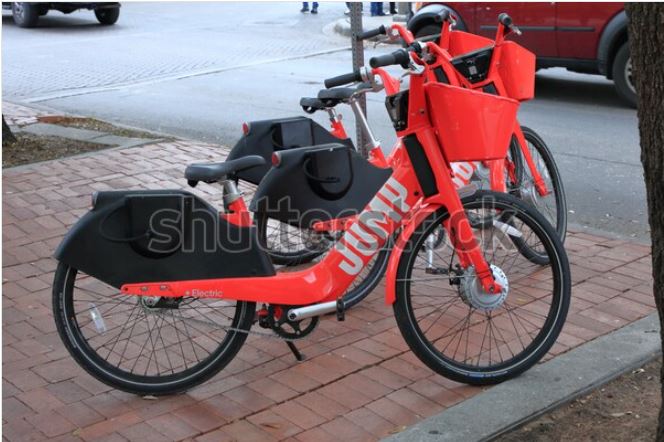
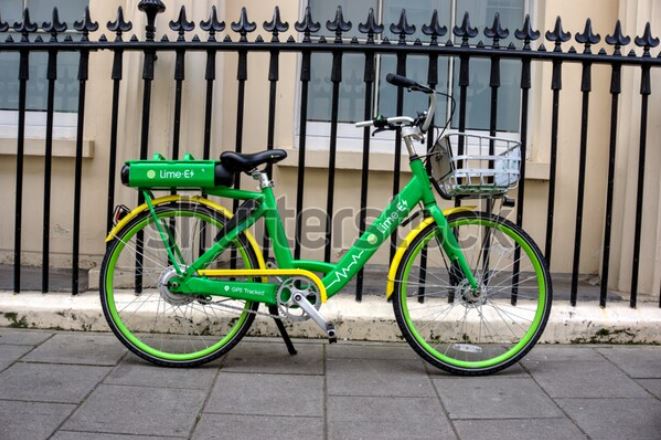
Shutterstock ID: 1354949432 Shutterstock ID: 1498828841
[ASK IF D3 = (01, 02, 03, 04, 05, 06)]
D47. Electric bikes or e-bikes are bicycles with a battery-powered “assist” that makes pedaling easier and gives the rider a boost.
Have you ever used an e-bike (such as pictured above)? This could be one that you’ve rented or one that you own. (New)
Yes [SKIP TO NEXT SECTION]
No
[ASK IF D47 = 02]
D48. Why have you never used an e-bike? Select all that apply. (New)
Preferred to use a different mode of transportation (e.g., a car, standard bike, or bus)
Never seen one available
Concerned about safety
Not sure how they work
Too expensive
Problem with the rental process (e.g., downloading the app, setting up an account)
Other
EMPATHY (3 Reg; 2 Grids)
[ASK All – Never bikers skip to here]
D49. Do you have friends or family members who ride bicycles? (New)
Yes
No
[ASK ALL]
D50. How often do you drive a motor vehicle? Almost every day, a few days a week, a few days a month, a few days a year, or do you never drive? (2012 #109)
Almost every day/every day
Few days a week
Few days a month
Few days a year
Never => Skip to next section
Other
[ASK ALL]
D51. How many licensed motor vehicles are owned, leased, or available for regular use by members of your household? (Was not read - 2012 #110)
[ENTER NUMBER]
[ASK if D50 = (01,02,03,04,06)]
D52. People don’t always pay close attention to bicyclists on the road, for many reasons. When you’re driving a motor vehicle, how often do you do any of the following? (New)
|
Always |
Frequently |
Sometimes |
Seldom |
Never |
|
|
|
|
|
|
|
|
|
|
|
|
|
|
|
|
|
|
|
|
|
|
|
|
|
|
|
|
|
|
[ASK ALL]
D53. Do you agree, disagree, or neither agree nor disagree with the following statements? (2012 #86 – removed top two options so it can be answered by all)
|
Agree |
Disagree |
Neither agree nor disagree |
|
|
|
|
|
|
|
|
|
|
|
|
|
|
|
|
|
|
|
|
|
|
|
|
SECTION E: E-SCOOTERS (5 Reg; 1 Grid; 1 Image)

[ASK ALL]
E1. Electric scooters or E-scooters are scooters that you stand or sit on and are powered by an electric motor. Do you think e-scooters are a safe mode of transportation…? (New)
|
Yes |
No |
|
|
|
|
|
|
|
|
|
|
|
|
[ASK ALL]
E2. Have you ever used an e-scooter? This could be one that you rented (e.g., Lime, Bird, etc.) or one that you’ve purchased. (New)
Yes
No
[ASK IF E2 = No]
E3. Why haven’t you used an e-scooter? (New)
Preferred to use a different mode of transportation
Never seen one available
Concerned about safety
Not sure how they work
Too expensive
Problem with the rental process (e.g., downloading the app, setting up an account)
Other
[ASK IF E2 = Yes]
E4. In which of the following places do you commonly ride an e-scooter? Select all that apply. (New)
Bike lane
Sidewalk
Main travel lane
[ASK IF E2 = Yes]
E5. When riding an e-scooter, how often do you wear a helmet? (2012 #41)
All of my rides
Nearly all of my rides
Most of my rides
Some of my rides
Not very many of my rides
None of my rides - Never
[ASK IF E2 = 01]
E6. In the past two years, were you ever injured while you were riding an e-scooter? (New)
Yes =>Enter number (enter zero if none)
No
SECTION F: CHILDREN WALKING/BIKING (7 Reg)
This next set of questions asks about children in your household and their walking and biking habits.
[ASK ALL]
F1. How many children, less than 16 years of age, currently reside in your household? Please do not count students living away from home or boarders. (2012 #93)
Enter number (enter zero if none) => If None, SKIP TO NEXT SECTION
[ASK IF F1 > 0]
F2. How old is [the/the oldest] child residing in your household? (2012 #95)
Enter number
[ASK IF F1 > 0]
F3. On average, how often does this child ride a bicycle? (New version of 2012 #96; adapted to mirror adult question at the beginning of the section S2AQ3)
Daily
Four to six times a week
Two to three times a week
Once a week
A few times a month
Once a month or less
[ASK IF F3 = (01, 02, 03, 04, 05)]
F4. When riding a bicycle, does this child wear a helmet for . . . (2012 #97)
All rides
Nearly all rides
Most rides
Some rides
Not very many rides
Never
F5_INT. The following few questions are about how this child learned about bicycling safety.
F5. In the past five years, has this child received any training in bicycling safety from someone outside the household? (New)
Yes
No [Skip to NEXT SECTION]
[ASK IF D40 = 01 (R RECEIVED BIKE TRAINING IN PAST 5 YEARS)]
F6. In the past five years, in which of the following formats did the child receive this bicycle safety training? Select all that apply. (New)
Instructor-led class or workshop
Self-paced reading, workbook, or online course
Individual lessons
Other
[ASK IF D40 = 01 (R RECEIVED BIKE TRAINING IN PAST 5 YEARS)]
F7. Who provided the training to the child? Select all that apply. (2012 #21, Was not read)
Bicycle shop
Police
Friends
Public school
Private school
Bicycle club
State/Local bike programs
Family
SECTION G: NEIGHBORHOOD CHARACTERISTICS (3 Reg/1 Grid)
Now, we want to ask a few questions about the area where you live.
[ASK ALL]
These next few questions are about your general travel habits. We are interested in all the ways you get around, including commuting for work, visiting friends, going to the grocery store, etc.
[ASK ALL]
G1. In general, how easy or difficult is it for you to travel to the places in your COMMUNITY where you want to go? Do not include out of town travel. Would you say it is… (2012 #113)
Very easy
Somewhat easy
Somewhat difficult
Very difficult
It depends on where I am traveling from
[ASK IF G1 = (03, 04, 05)]
G2. Where in your community do you find it more difficult to travel to? Select all that apply. (2012 #114 – Was not read – Top answer option from 2012 open-ends added; changed direction from “from” to “to” to align with series)
Home
Work
Doctor’s Office
Center of town or business area
Place doesn’t matter/All the same
Other
[ASK IF G1 = (03, 04, 05)]
G3. What are the reasons it is difficult for you to travel to the places in your community where you want to go? Select all that apply. (2012 #115 – Was not read – Top answer options from 2012 open-ends added)
Don’t have access to vehicle
Too much traffic congestion
Sidewalks are inadequate/poor condition
No or few public transportation options
I cannot afford transportation
I have a disability or health impairment
Other (Specify)
[ASK ALL]
G4.
These next questions ask about the area that is within a quarter
mile, or about 3 blocks, around where you live. Are there any of the
following within ¼ mile of where you live? (2012
#99 – Urbanicity)
|
Yes |
No |
|
|
|
|
|
|
|
|
|
|
|
|
|
|
|
|
|
|
|
|
|
|
|
|
|
|
|
SECTION H: DEMOGRAPHICS (14 Reg)
These final questions ask for information about you and your household. These questions are for classification purposes only. It is important that we collect this information so that we can report information about specific groups of people.
[ASK ALL]
H1. Do you currently own or rent your home? (New)
Own
Rent
Other arrangement
[ASK ALL]
H2. Including yourself, how many persons age 16 and older live in your household? (2012 #118)
[ENTER NUMBER]
[ASK ALL]
H3. What is your age? [open-ended/code actual age] (2012 #100-101)
Enter number
[ASK ALL]
H4. What is your gender? Mark all that apply. (2012 # SA3 - Was recorded from interviewer observation)
Female
Male
Transgendered, non-binary, or another gender
Prefer to self-identify
Prefer not to say
[ASK ALL]
H5. What is your current employment status? Select all that apply. (2012 #102)
Employed full-time
Employed part-time
Unemployed
Retired
Going to school
Caregiver or stay-at-home parent
Disabled
Something else
[ASK IF H5 = 01, 02]
H6. Do you work from home? (New)
Yes, one or two days per week
Yes, three or more days per week
No, I commute to an office or job site every day that I work
Other
[ASK IF H5 = 01, 02, 05 – Employed or going to school]
H7. Some employers and schools offer incentives to encourage walking, biking, or other physical activity, such as reducing insurance premiums or offering prizes for participants that log a given number of weekly steps or minutes of activity. Does your employer or school offer this type of incentive program? (New)
Yes
No
Not Sure
[ASK IF H7 = 01]
H8. Did you participate in this program?
Yes
No
[ASK IF H7 = 02]
H9. If such a program was offered, would you participate?
Yes
No
Not Sure
[ASK IF H8 = 01]
H10. What impact did the program have on you?
It made me more likely to choose physically active transportation
It made me less likely to choose physically active transportation
It had no impact
Not Sure
[ASK ALL]
H11. What is the highest grade or year of school you have completed? (2012 #103 – Was not read; more granular <High School options removed)
Less than finishing high school
High school graduate or GED
Some college
2-year technical/Associates degree
Four-year college graduate
Some graduate school
Graduate degree
[ASK ALL]
H12. Are you of Hispanic, Latino, or Spanish origin? (2012 #104)
Yes
No
[ASK ALL]
H13. Which of the following racial categories describes you? Select all that apply. (2012 #105)
American Indian or Alaska Native
Asian
Black or African American
Native Hawaiian or Other Pacific Islander
White
[ASK ALL]
H14. Which of the following categories best describes your total household income before taxes in 2021? Your best estimate is fine. Would it be…? (2012 #107 – Adjusted income categories to map to 150% of the Federal Poverty Line)
Less than $20,000
$20,000 to less than $25,000
$25,000 to less than $30,000
$30,000 to less than $35,000
$35,000 to less than $40,000
$40,000 to less than $45,000
$45,000 to less than $50,000
$50,000 to less than $55,000
$55,000 to less than $60,000
$60,000 to less than $65,000
$65,000 to less than $85,000
$85,000 to less than $100,000
$100,000 to $149,000
$150,000 or more
SECTION I: DISABILITY (6 Reg)
These last few questions ask about different types of physical and mental impairments or disabilities that you may have. We ask about these to better understand how people with disabilities and mobility limitations get around and how public roads and sidewalks can be safer for everyone.
[ASK ALL]
I1. Are you deaf or do you have serious difficulty hearing? (2012 #111 – New disability series pulled from ACS)
Yes
No
I2. Are you blind or do you have serious difficulty seeing even when wearing glasses?
Yes
No
I3. Do you have serious difficulty walking or climbing stairs?
Yes
No
I4. Because of a physical, mental, or emotional condition, do you have difficulty doing errands alone such as visiting a doctor’s office or shopping?
Yes
No
[Ask if (I1=01 or I2=01 or I3=01 or i4=01)]
I5. Do you use special equipment or an assistive device to help you get around? (2012 #112; answer options expanded)
Yes, a non-motorized wheelchair
Yes, a motorized chair
Yes, a walker
Yes, a walking cane
Yes, a white cane or guide dog
Yes, some other kind of special equipment
No
[Ask if (I1=01 or I2=01 or I3=01 or i4=01)]
I6. Are there additional accommodations that you wish you had, or you wish were available in the places you go, to increase your safety and comfort? [open-ended] (New)
Page
| File Type | application/vnd.openxmlformats-officedocument.wordprocessingml.document |
| File Modified | 0000-00-00 |
| File Created | 2023-08-20 |
© 2026 OMB.report | Privacy Policy
